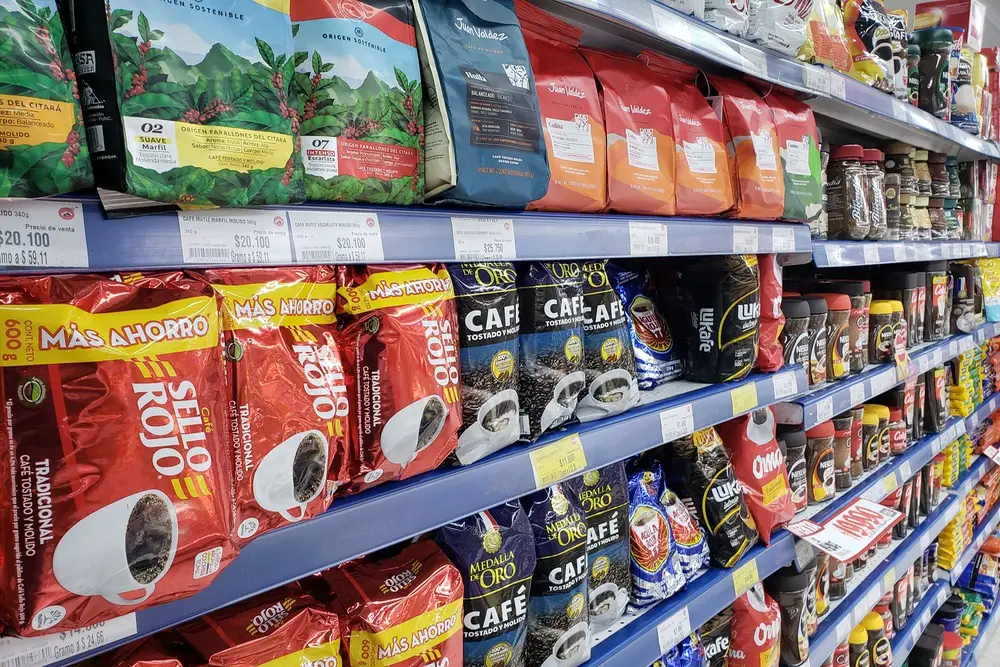It’s common for people to feel the urge to go to the bathroom shortly after drinking a cup of coffee. If this has happened to you, know that it is perfectly normal as caffeine has a natural laxative effect.
Table of Contents
Caffeine and its laxative effects
Caffeine is the main component of coffee; hence, this substance has multiple effects in our body once we ingest it. One of the effects of caffeine that you’ve probably noticed by now is that it has to do with gut motility.
In fact, caffeine is a natural laxative that, while not the strongest, can certainly stimulate bowel movements caused by muscle contractions.
These muscular contractions of the intestines are called peristalsis and are used to move waste products out of the body. However, it should be noted that not all people react the same to caffeine ingestion, as some people do not experience the laxative effects.
Coffee also contains chlorogenic acids, which can speed up digestion and stimulate the production of stomach acid. Still, coffee isn’t the only reason for the urge to go to the bathroom.
The additives added to coffee, such as whole milk, cream and various sweeteners, also have a laxative effect.
How does coffee work as a laxative?
Several studies support the theory that caffeine has a laxative effect. In a 2008 study, researchers gave participants either water or caffeine powder dissolved in water to drink.
They then measured the participants’ anorectal function using manometry, a test that measures anal sphincter pressure and colon reactivity.
The results suggest that caffeine ingestion leads to stronger anal sphincter contractions, which translates into a greater urge to go to the toilet.
However, for several decades it has been suspected that other factors are responsible for the accelerated motility of the gut.
Coffee and gastrin production
Both caffeinated and decaffeinated coffee have been reported to stimulate production of the hormone gastrin. This hormone is responsible for telling the stomach to release gastric acid as part of the digestive process.
Because gastrin aids digestion, it can contribute to increased visits to the bathroom after drinking coffee.
Coffee and its effects on the gastrocolic reflex
The gastrocolic reflex is a physiological response in which the arrival of food on an empty stomach leads to increased movements of the entire gastrointestinal musculature.
The accelerated motility of the digestive tract, especially in the small and large intestine, means that the bowel movement must take place immediately after eating.
A cup of coffee for breakfast can be enough to make you want to go to the toilet. Also, this reflex is more pronounced in the morning, which coincides with the time when many of us drink our first cup of coffee.
The acidic pH of coffee does not only affect the stomach
Coffee can stimulate intestinal motility, both because of its caffeine content and its acidic character. This could explain why some people experience stomach upset with both decaffeinated and regular coffee.
Remember that both types of coffee, caffeinated and decaffeinated, contain chlorogenic acid, which in turn increases stomach acid levels.
This increased stomach acid then accelerates digestion and intestinal motility, which subsequently has the following effects? Right, another visit to the toilet.
So, does coffee cause diarrhea?
According to the US National Institute of Diabetes and Digestive and kidney Diseases include among the most common causes of acute diarrhea:
- Viral, bacterial or parasitic infections
- side effects of medication
- abdominal surgery
- Long-term use of medication
However, coffee is not mentioned anywhere as a major cause of diarrhea, showing that the laxative effect is not felt by all consumers of this drink.
Does the laxative effect of coffee affect everyone equally?
According to a decades-old but still valid study, 29% of participants felt an increased urge to go to the bathroom within 20 minutes of drinking coffee.
53% of all female participants felt the laxative effect of coffee within 20 minutes.
However, it should be noted that this effect is explained by another study, which found that women were more likely than men to develop digestive problems such as irritable bowel syndrome.
However, it should be noted that the first study also found people who did not have any gastrointestinal symptoms.
The researchers also note that it’s not clear whether coffee’s laxative effects disappear with frequent consumption.
In other words, it is not yet known whether regular coffee consumption reduces sensitivity to the effects on the gastrointestinal tract.
Milk and cream are also responsible for going to the toilet
Coffee itself is a food that is free of additives and preservatives. However, milk and cream can stimulate bowel movements because they contain lactose, and around 65% of people worldwide cannot properly digest this carbohydrate.
The inability to digest lactose is known as lactose intolerance and results in symptoms such as:
- bloating in the abdomen
- stomach cramps
- diarrhea
shortly after consuming dairy products.
So, if you add the effects of lactose intolerance to the natural effects of coffee, the laxative effect is probably at least twice as strong.
This at least partially explains why many people get diarrhea after drinking coffee.
In addition, it is believed that people suffering from irritable bowel syndrome are more susceptible to the effects of coffee, especially when it is laced with additives.
Can Coffee Make Irritable Bowel Syndrome Worse?
There is evidence that people with irritable bowel syndrome have more sensitive guts and may therefore be more affected by the effects of caffeine.
In this way, caffeine can cause over-excitation of the nervous system, including the nervous system connected to our gut.
So, when the gut nervous system becomes overstimulated, it can lead to increased contractions in the colon, causing a feeling of abdominal cramps.
In addition, the stool is looser and the feeling of having a bowel movement is much more urgent. For example, some people who already have irritable bowel syndrome have an overworked colon, which coffee and other caffeine sources can make even worse.
However, there are many causes of IBS, and everyone reacts differently to substances like coffee. Therefore, not all people with IBS have an over-excited gut nervous system, so caffeine may not cause them any problems.
What can you do to lessen the effects of coffee on your digestive system?
In general, the World Health Organization recommends limiting caffeine consumption to 400 mg per day, which is 3 to 4 cups.
Also, it is recommended that pregnant women should not consume more than 200mg of caffeine per day. However, some people are more sensitive than others to the effects of coffee.
But if you’re someone who doesn’t tolerate coffee well, you may need to adjust your drinking habits to improve your symptoms.
So here are some tips you can put into practice.
The type of coffee is crucial
A 2014 study suggests that high roast coffee produces less stomach acid than medium roast coffee, which is due to the lower caffeine content of the end product.
Note that caffeine appears to be heat sensitive. The higher the temperature the beans are exposed to, the lower the concentration of this alkaloid in the coffee.
Likewise, Robusta coffee contains more caffeine than other varieties such as Arabica or Liberica coffee. This is important, especially if you drink instant coffee, since it’s mostly made from Robusta coffee.
Don’t drink coffee on an empty stomach
Do you remember the gastrocolic reflex? Remember that just drinking coffee is enough to increase gut motility.
The acidity of coffee can also speed up going to the toilet, as it increases the concentration of stomach acid, which in turn stimulates the digestive process.
So, before you drink your coffee, you should eat something to reduce the chances of stomach discomfort.
If possible, drink black coffee without any additives
We know sugar-free coffee isn’t for everyone, but it may help reduce gastrointestinal distress.
Sugar can also stimulate bowel movements. However, if you’re someone who needs to sweeten your coffee, you can try natural sweeteners and see how you get on with them.
If, on the other hand, you are lactose intolerant, there are alternatives such as soy milk and almond milk.
Summary
Not everyone needs to use the restroom after a cup of coffee, but it can happen.
In addition, people suffering from conditions such as irritable bowel syndrome, such as for example, people with lactose intolerance are more likely to have gastrointestinal problems after drinking coffee.
However, always remember to consult a doctor before making any dietary changes, especially if you have an underlying medical condition.



